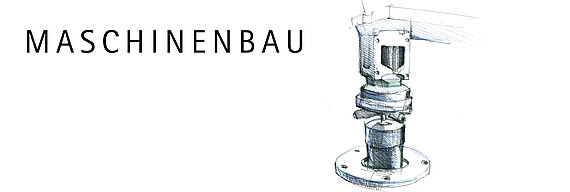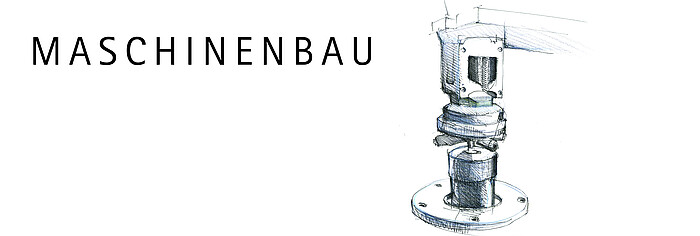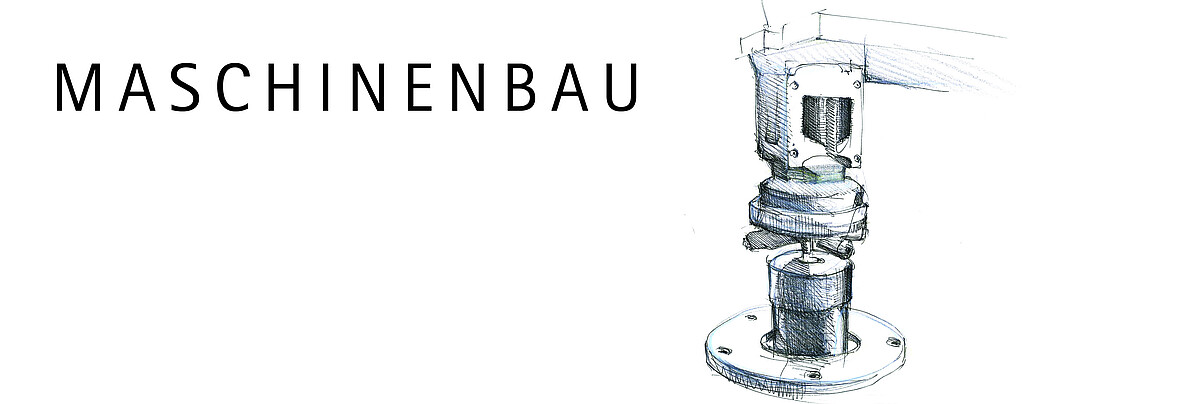As a rule, the course of study takes 4 semesters. After passing the master thesis you will receive the degree Master of Science.
What can you expect during your studies?
The Master of Mechanical Engineering at LUH is characterized by a great freedom of choice. In the first semester only the subjects Machine Dynamics and Work Science are compulsory. You can further deepen your specialist knowledge and specialize in the elective competence fields of energy and process engineering, development and design and production engineering. However, you can also decide not to set a main focus and to position yourself with a wide range and diversity if possible. The course also includes excursions to industrial companies and tutorials. The Studium Generale also offers the possibility of choosing a course from the entire range of courses offered by the university.
The Master's programme is generally more research-oriented, so that the skills of scientific work can be deepened. Students learn the ability to work scientifically with the preparatory coursework and the final Master's thesis. If you have already completed the twelve-week specialist internship in the Bachelor's programme, further options in the three elective competence fields are open to you. If you have not yet completed a specialist internship, you must have done so by the time you register for your Master's thesis at the latest.
Detailed information on the course contents can be found in the module plan and in the module and course catalogues.
Qualification goals
-
Tasks and requirements in mechanical engineering
Mechanical engineering comprises the development, design, construction and implementation of technical products, processes and systems that function in a traceable, reliable and defined manner. The professional requirements consist of the analysis and synthesis of individual scientific and technical-functional aspects and their functional interplay. In addition to the optimization of established technologies, innovative and interdisciplinary solutions for complex problems must be developed.
-
The main qualification goals of the Master's degree program in mechanical engineering are ...
- the broadening and deepening of technical knowledge in the sub-disciplines of mechanical engineering through the refinement of models and processes with regard to the specific requirements of application areas
- an analytical and scientific understanding of complex mechanical engineering issues for the purpose of theoretical explanation and identification of innovative technical design possibilities
- the ability to plan (determination of requirements, feasibility), develop (construction and design) and produce (production planning, manufacture, assembly, commissioning) mechanical engineering products and processes by systematic application of engineering methods
- the ability to test and evaluate mechanical engineering products, processes and procedures on the basis of a scientific and systematic working and approach
- the ability to carry out independent scientific work (design and execution of a research plan, use of adequate scientific methods, presentation and critical appraisal of research results)
-
Graduates are able to ...
- plan, design and interpret mechanical engineering products, processes and procedures on the basis of theory and make well-founded decisions regarding the fulfilment of criteria and compliance with tolerances
- apply engineering methods in various fields of application in mechanical engineering and to adapt them adequately to the context
- implement and monitor mechanical engineering products, processes and procedures
- apply test and inspection procedures as required, to interpret and critically evaluate results
- deal with complex problems in a systematic and structured manner and to think in an abstract, creative, innovative, networked and interdisciplinary manner in the process of finding solutions
- leading technical projects and assuming management tasks, organizing and coordinating work contexts in a goal-oriented manner, communicating technical issues and work results in an address-oriented manner
- work on current issues in research and development based on scientific standards
Application and Admission
Areas of activity
Graduates of the Master's programme are far more highly qualified than Bachelor's graduates, can work in a more research-oriented and complex way and are therefore more versatile. Especially medium-sized companies with an international orientation are looking for mechanical engineers who can work in the fields of development and design, but also in production and sales. Depending on their individual specialisation, graduates can be employed in companies working in the fields of energy technology, medical technology, automotive engineering, plant engineering or consulting.
You can find concrete job opportunities and career examples under experience reports.



Module plan and catalogues, tutorials, labs
Preamble sample study plans
The Master's program in Mechanical Engineering, which was newly conceived with the PO 2017, is characterized by a large degree of freedom of choice, which allows students a large degree of freedom of design according to their personal interests. For orientation purposes, some sample curricula are listed below, which highlight exemplary different focuses within the three areas of specialisation of the faculty. Please note that only the area of specialisation itself is mentioned in the final certificate (if the corresponding number of credits from this area has been achieved; 31 LP and at least 25 LP from elective modules).
Please also note that you are welcome to seek advice on your study planning both from the institutes and, of course, from the Dean of Studies. Finally, as Dean of Studies, I would like to ask you to use the freedom in the choice of your individual study plan in a truly responsible manner. With the selection of your elective modules, you lay the foundation for your "basic knowledge", which will (hopefully) benefit you for 30 to 40 years of exciting professional life. Therefore, think carefully about your own course of study and also include the specialist internship in it.
Decision guidance on the model curricula
This decision-makiing aid enables you to find the areas of specialisation that match your interests. After you have viewed the sample study plan and click on continue, you will be taken back to the beginning and can change your selection.
In the module catalogue you will find information on all elective and compulsory modules of the respective specialisation areas.
Good luck with your Master.
Vademecum
| SoSe 24 | WiSe 23/24 | SoSe 23 | WiSe 22/23 | SoSe 22 | WiSe 21/22 |
|---|---|---|---|---|---|
| Master booklet | Master booklet | Master booklet | Master booklet | Master booklet | Master booklet |
Exam regulations

 ©
Manmeet Singh
©
Manmeet Singh
30823 Garbsen

 ©
Manmeet Singh
©
Manmeet Singh
30823 Garbsen







